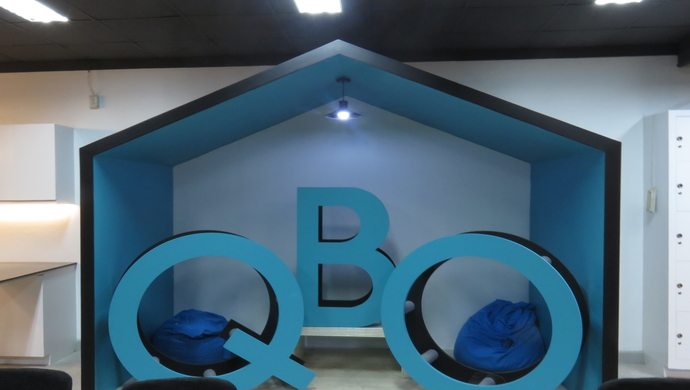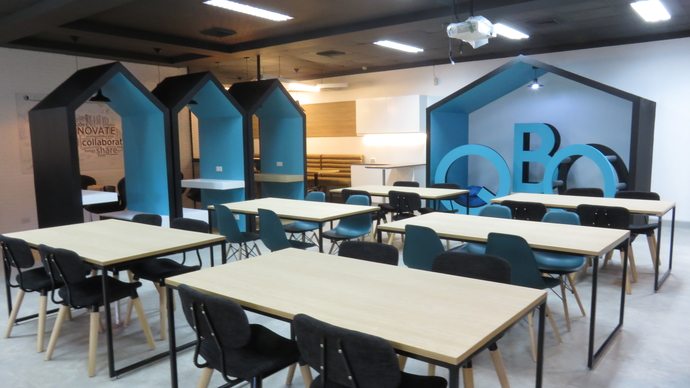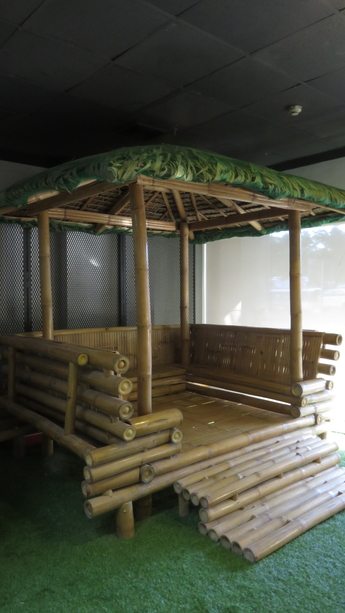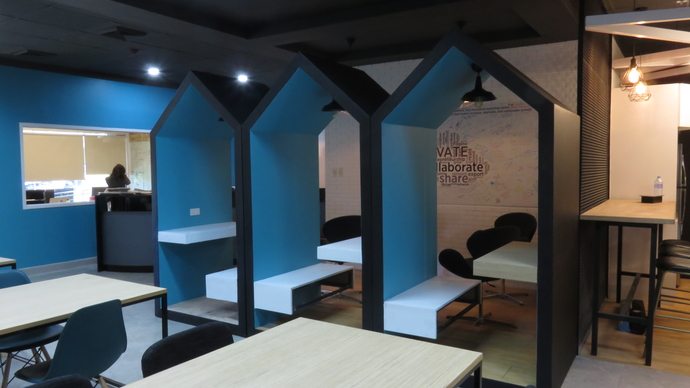We scored an exclusive preview to the newest startup hub in Manila.
The kubo, or nipa hut, is an icon of the Philippine culture whose architectural principles were the base of many traditional houses and buildings in the country today. The kubo is essentially the basic unit of the Filipino home – sturdy, small enough to bring anywhere, and distinctly Filipino. These qualities of the kubo is the inspiration of the QBO innovation hub.
QBO (pronounced kubo) is a partnership between tech startup accelerator Ideaspace, international grantmaker J.P. Morgan Chase Foundation, and the Philippines government’s Department of Trade and Industry (DTI) and Department of Science and Technology (DOST), with the aim to help grow the startup ecosystem in the country through the establishment of a number of innovation hubs nationwide.
It is launching in Manila today and e27 has been invited to a first look at the newest hub of the Philippines’ startup community.
More than just a co-working space
QBO, while providing a workspace for startups, is not just a co-working space.“We look at ourselves as a startup enabler,” Katrina Chan, Director of QBO, states. Chan emphasises that the four key partners of the initiative have come together for the same goal: helping Filipino startups make noise and change the world.
Also read: Meet JuanCredit, the first credit scoring system for the unbanked in the Philippines
Two of the biggest challenges that Philippine startups face are securing funding and dealing with rigid government regulatory policies. QBO aims to remove these barriers by being conduit between startups and private and government entities that can provide resources.
Fittingly, QBO will house and mentor Philippines startups, giving them access to a co-working space, various networking events, workshops and classes, and pitching avenues to investors and potential partners.
The involvement of both private and government entities to the initiative provides QBO with the machinery to offer budding entrepreneurs and startups with assistance in incorporating their business, registering for licenses and permits, as well as research and filing for IP, on top of the consultations with resources for legal, accounting, and tax matters.
Developing a diverse startup community
“We’re multi-sectoral, with programmes for different stages of startups in different industries – we’re not servicing a particular industry.” Chan states.
Also read: Jack Ma talks about why Alibaba will last for 102 years
QBO welcomes and encourages collaboration between people and entities – from students or corporates considering joining the community to experienced CEOs, or from brewing ideas to fully operational startups.
“Once you’re part of QBO, we want to make sure that you grow from it.” Chan adds,
QBO plans to hold regular open-for-all workshops and classes covering various topics that are useful for entrepreneurs and startups, whichever stage of the journey they may be.
Dedicated mentorship
From the QBO community, the most promising startups will be identified and provided with mentorship. Somewhat similar to an incubation programme, but vastly different in that it does not have a specific timeline or a set curriculum, the QBO mentorship programme is customised based on the specific needs of each startup.
Through the DOST and the J.P. Morgan Foundation, startups undergoing the programme will have the opportunity to access grants for further tech and product research and mentorship for business development as well as opportunities to be directed to potential investors, partners, and clients.
A wider reach
QBO banks on its partnership with DTI, which has presence all over the country, to reach out to budding startups outside of the capital and create startup hubs in key cities all over the country.
While Metro Manila is the main hub of the Philippine startup community, startups from other cities has also started creating a buzz. Not surprising, as a country with over 7 thousand islands, since a lot of people are creating new tech to solve problems that are local to them.
Also read: 5 Filipino startups that showcase a different Philippines
Natasha Bautista, head of business operations, says that they have already interviewed startups and are already looking into communities in several cities.
“There are a lot of problems outside of Manila that people are trying to solve.” Bautista states. This is one of the reasons QBO is looking outside of the capital, as rural Philippines faces unique challenges that has the potential to trigger development of innovative tech.
When asked if startups in rural areas may be too localised, Chan reiterates that localised and small does not mean it cannot be brought to the global stage. “We are looking for startups with the potential to solve actual problems. We are not focussed on just digital technology, but any type of technology that can change a way of life.”
“Besides, a lot more places around the world look a lot closer to the Philippines than to Palo Alto.” Chan adds.
All QBO services are free for the first year. QBO is located at DTI International Building along Buendia Avenue, Makati City, Philippines.
The post QBO innovation hub will provide resources to enable Philippine startups, launches in Manila appeared first on e27.



